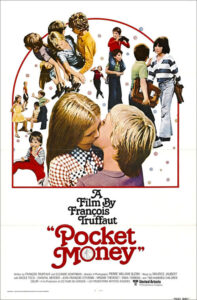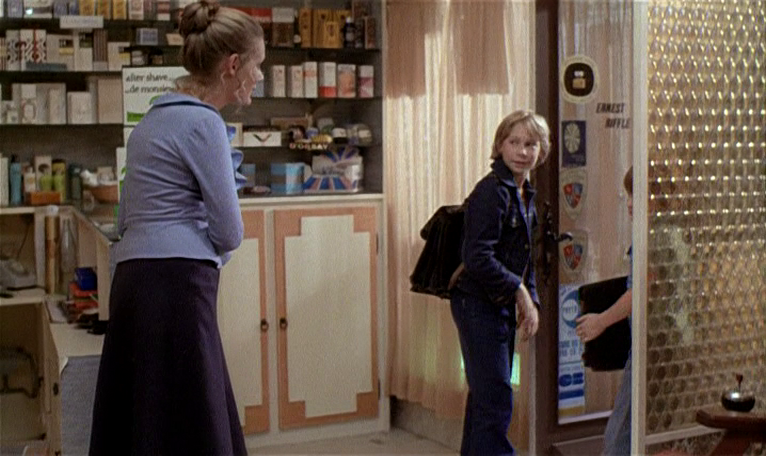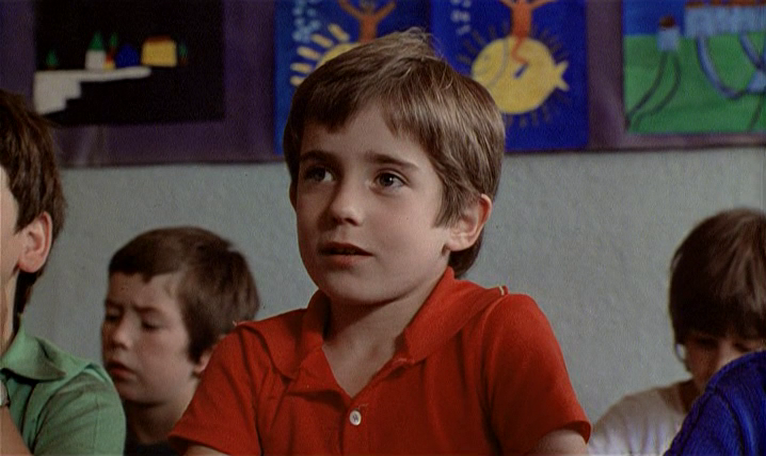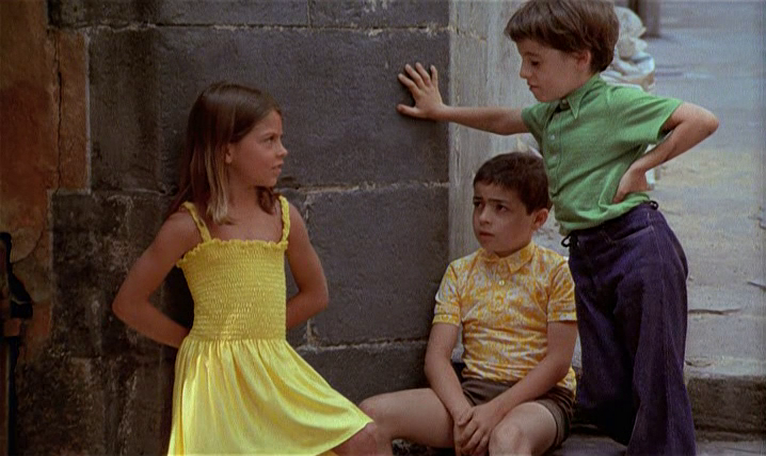Small Change / Argent de Poche, L’ (1976)
“Of all of mankind’s injustices, injustice to children is the most despicable!”
|
Synopsis: |
|
Genres, Themes, Actors, and Directors:
Response to Peary’s Review: … and a “welfare case” (Goldman) with a mysteriously absent family. Otherwise, as Peary notes, “this is a simple film about innocent themes (a boy’s first kiss, boys sneaking into a movie, boys making their own breakfast, boys spying on a nude woman)” — though he argues that this simplicity masks “unforgettable scenes and faces”, with “much… revealed about children’s special, often-troubled world”. While I recall greatly enjoying Small Change as a teenage film fanatic, I was less enamored with it during a recent revisit. The biggest problem is that the episodic nature of the screenplay — though clearly strategic to Truffaut’s purposes — makes it impossible to get to know much about any of these kids, each of whom seems like a potentially interesting protagonist on his/her own. To that end, the performances by the child actors are uniformly natural and engaging, and Truffaut should certainly be commended for the obvious time and energy he put into this pursuit — yet we continually long for more knowledge about each of their situations. Meanwhile, the overall tone of the film shifts too dramatically between humor and pathos, with certain scenes (such as an infamous episode involving a toddler left on his own in a high-rise with an open window) nearly too painful to watch, yet designed to garner chuckles (!?). By its final scenes (spoiled in Peary’s review, though I won’t say more here), the movie has shifted into different territory altogether, with a well-meaning schoolteacher (Jean-Francois Stevenin) — who “will remind some of Truffaut” — providing a didactic lecture to his students before they leave for the summer; at this point, the true intent behind the film is suddenly revealed. Unfortunately, it casts an overly moralistic pall upon the film, which (as noted earlier) is otherwise presented as primarily a light-hearted coming-of-age ensemble tale. While there are many naturalistic moments to enjoy throughout the film, they ultimately don’t add up to a satisfying enough experience to recommend as “must-see” for all film fanatics. Redeeming Qualities and Moments: Must See? Links: |




One thought on “Small Change / Argent de Poche, L’ (1976)”
Not a must – in complete agreement with the perceptive review…except for the fact that I wouldn’t refer to this film as “light-hearted”.
I recall feeling indifferent about this rambling piece upon its release. Having just seen it again, over 35 years later, I’m still indifferent about it. Though, as mentioned, we do eventually get a wrap-up on the theme, we’ve been needlessly left adrift all along – observing children either behaving badly or being preoccupied with sex (the latter being a common feature in a Truffaut film, whether it deals with children or not). Truffaut presents most of the film’s events with typically cold detachment – causing us to think he more or less apathetically accepts or approves of what the film itself will ultimately censure.
Of the cast, Stevenin is fine in each of his random appearances – I especially like the sequence in which, camera in hand, he observes his wife giving birth.
Overall, this is something of a chore to get through and not satisfying enough – since the filmmaker doesn’t seem to have arrived at a convincing statement.